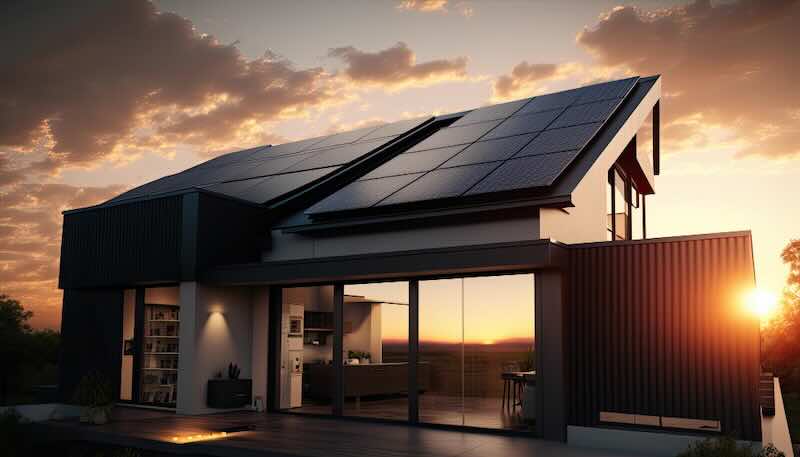The adoption of solar panels across Australia continues to surge as homeowners seek cost-effective and environmentally friendly ways to power their homes. While the benefits of solar energy are undeniable, not every roof is automatically suitable for solar installation. Assessing your roof’s suitability is essential to ensure you maximise your investment and achieve optimal energy efficiency.
Here’s what you need to consider when evaluating whether your roof is ready to harness the power of the sun.
Roof Orientation and Tilt
The direction and angle of your roof play a pivotal role in determining how much sunlight your solar panels can capture. When it comes to solar panel orientation in Australia, north-facing roofs are generally ideal, as they receive the most consistent sunlight throughout the day – however, east- or west-facing roofs can also be effective depending on your energy usage patterns.
The angle or tilt of your roof should also be evaluated – ideally, the roof’s slope should be between 15 and 30 degrees to optimise sunlight exposure. If your roof’s tilt isn’t within this range, mounting systems can often be adjusted to create the perfect angle.
Roof Material
The material of your roof impacts the ease and cost of solar installation – most roofing materials, such as tiles, metal, and concrete, are compatible with solar panels. However, some materials, like slate or asbestos, may require additional care or reinforcement, potentially increasing the installation cost. Discuss your roof’s material with a professional installer to understand any specific requirements or challenges.
Roof Condition and Age
It’s crucial to assess the condition and age of your roof before installing solar panels. Solar systems are designed to last 25 years or more, so your roof should be in good condition to avoid costly repairs or replacements down the track. If your roof is nearing the end of its lifespan, it’s wise to address any necessary repairs or even consider a replacement before proceeding with the installation.
Shading and Obstructions
Shading from nearby trees, chimneys, or neighbouring buildings can significantly impact the efficiency of your solar panels – even partial shading on one panel can reduce the output of the entire system. A professional solar installer will typically conduct a shading analysis to identify any potential issues and suggest solutions, such as strategic panel placement or the use of microinverters.
Available Roof Space
Installing solar panels requires sufficient roof space to accommodate the system you need. The amount of space depends on your household’s energy consumption and the type of panels you choose. High-efficiency panels can generate more power in smaller spaces, making them ideal for compact roofs. Additionally, consider any plans for future extensions or modifications that could impact your solar system’s layout.
Structural Integrity
Solar panels add weight to your roof, so it’s vital to ensure your roof can support the additional load. A structural assessment by a qualified professional will confirm whether reinforcements are necessary to safely accommodate the panels.
Why Roof Suitability Matters
Assessing your roof’s suitability for solar panels is more than just a technical consideration – it’s about ensuring your investment delivers the best possible results. A well-planned installation can lead to significant energy savings, increased property value, and a reduced carbon footprint. By understanding the factors that impact solar panel efficiency, you’ll be better equipped to make informed decisions about your solar energy journey.
Seek Expert Advice
If you’re unsure about your roof’s suitability for solar panels, consult with a professional installer; as they can conduct a detailed assessment and recommend the best approach to optimise your solar energy system. Investing in solar is a step toward a more sustainable future – ensuring your roof is up to the task is the first step in unlocking its full potential.












